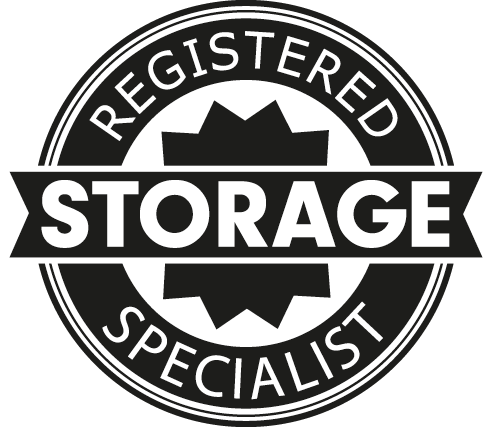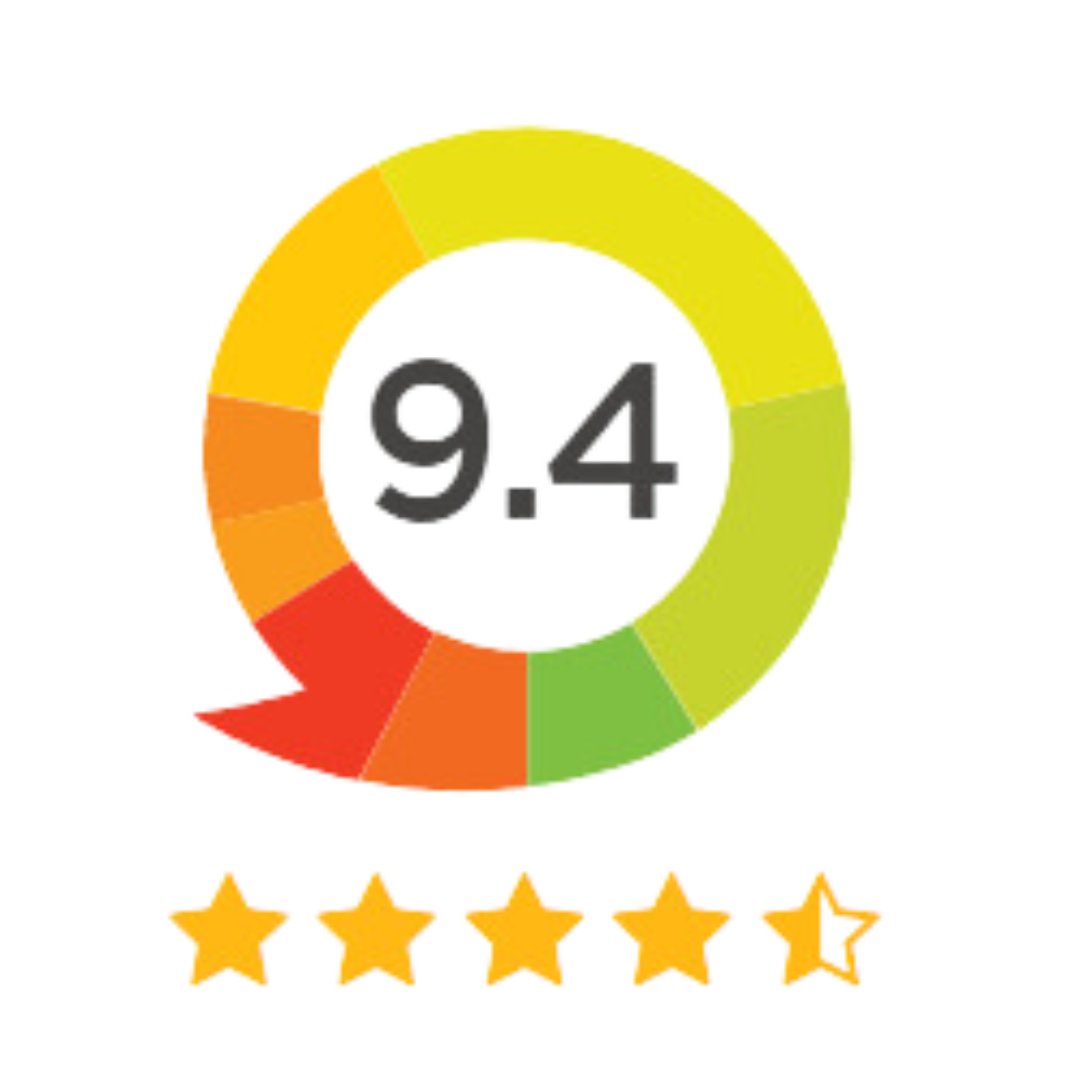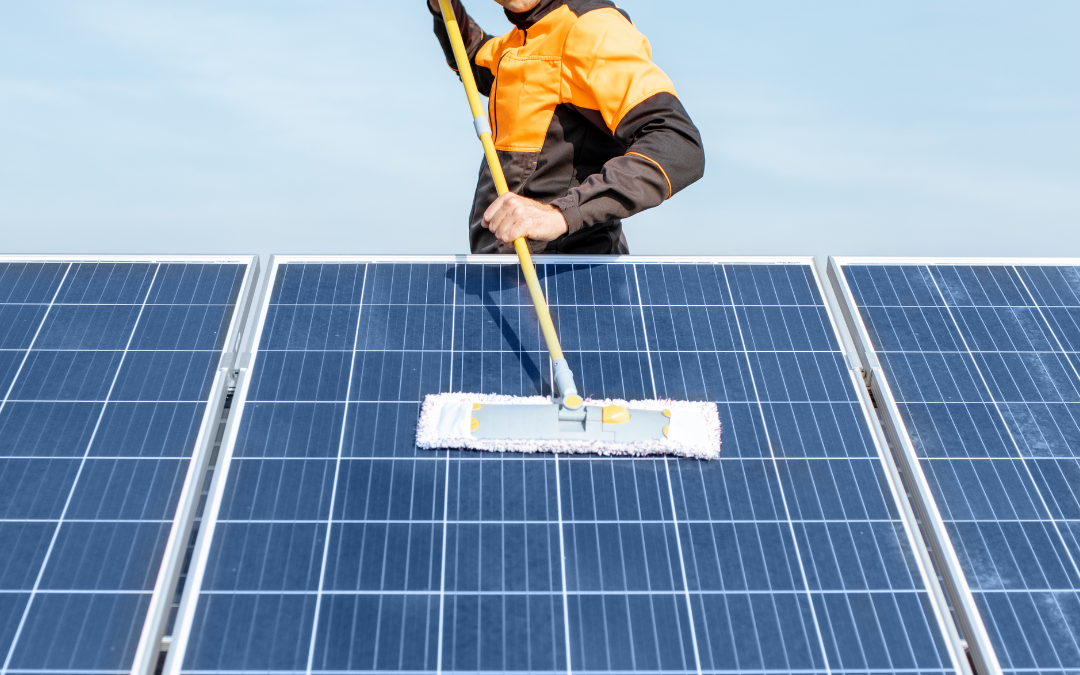Cleaning solar panels is crucial for maintaining their efficiency. Solar panels are a sustainable and efficient way to generate green energy, contributing positively to the environment and potentially saving on your energy bills. To ensure your solar panels continue to perform optimally, regular cleaning is essential.
In this article, we will discuss why cleaning solar panels is important, whether you can do it yourself or should outsource, how often to clean them, and provide some useful tips if you prefer to do it yourself.
Why Clean Solar Panels? Like cars, solar panels need a wash now and then. While solar panels are mostly self-cleaning, dust, dirt, and other contaminants can accumulate over time on the surface. This can affect the performance and reduce the efficiency of your solar panels. If you live near a highway or if there are many neighbors using, for example, a fireplace, the level of dirt may be higher, making it worthwhile to clean your panels regularly. Additionally, solar panels on a flat roof are more likely to accumulate dirt than panels on a pitched roof due to the angle. The steeper the panel, the better dirt can wash away. By keeping your solar panels clean, you ensure they can capture maximum sunlight and perform optimally.
Clean Solar Panels Yourself or Outsource? Can you clean solar panels yourself, or is it better to outsource? While it may be tempting to do it yourself, it’s essential to remember that solar panels are not windows. They require specific knowledge and attention to ensure they are cleaned correctly without causing damage. It is advisable to hire a professional company with experience in solar panel cleaning. These experts have the right tools, techniques, and knowledge to clean your solar panels safely and effectively without the risk of damage.
How Often to Clean Solar Panels? The frequency of cleaning your solar panels depends on various factors, such as your location and the environment. In general, we recommend cleaning your solar panels at least once every 4 years. However, if you live near a highway or if many neighbors use fireplaces, cleaning the panels more often may be beneficial. Panels on a flat roof generally get dirtier faster than panels on a pitched roof due to the angle. The steeper the panels, the better dirt can flow away.
Tips for Cleaning Solar Panels If you prefer to clean your solar panels yourself, here are some tips to keep in mind:
- Safety First: Ensure that no one leans or stands on the panels, as solar cells are very fragile. Safety, both for you and the panels, should always come first.
- Rinse with Water: Before starting the cleaning process, thoroughly rinse the solar panels with water. It’s best to do this during a rain shower, as it prevents lime streaks and saves water. Moreover, the temperature difference between the water and the panels is not too significant, reducing the risk of damage.
- Avoid Cleaning in Direct Sunlight: Never clean your solar panels during full sun or on a hot day. The panels can become very hot as they act like small energy factories. Spraying cold water on hot panels can cause the cells to “shock” and crack. Wait for a cooler part of the day to clean them.
- Use a Microfiber Cloth: When polishing the solar panels, it’s crucial to use a gentle approach. Use a microfiber cloth instead of hard brushes to prevent scratches. The delicate surfaces of the panels require careful handling.
- Avoid Harsh Chemicals: Do not use aggressive chemicals for cleaning your solar panels. These can damage the protective coating on the panel. The coating is designed to enhance sunlight absorption, not for cleaning. Instead, opt for mild cleaning agents suitable for solar panels or clean them with water only.
Regularly cleaning your solar panels is essential to maintain optimal efficiency. By removing dirt, dust, and other contaminants, you ensure your solar panels can capture maximum sunlight, generating the maximum energy yield. While you can choose to clean them yourself, it is advisable to hire a professional company to ensure proper cleaning without causing damage.
Follow the mentioned tips if you decide to do it yourself, but always keep safety and the vulnerability of the solar panels in mind. With regular maintenance, you can continue to enjoy the benefits of your solar panels and contribute to a more sustainable future.
Enjoy the sun!





